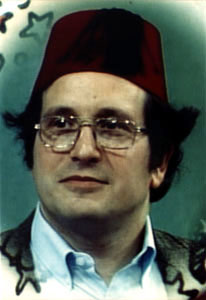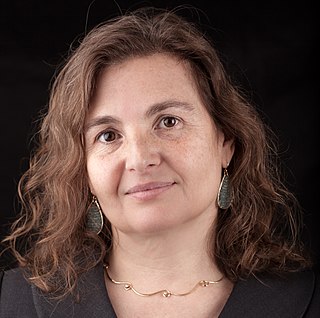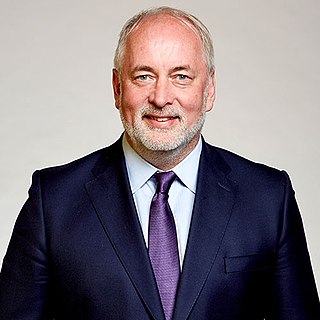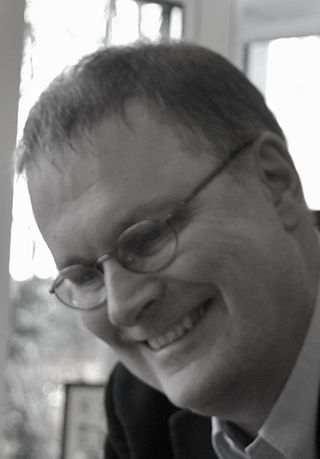
Gerald Jay Sussman is the Panasonic Professor of Electrical Engineering at the Massachusetts Institute of Technology (MIT). He has been involved in artificial intelligence (AI) research at MIT since 1964. His research has centered on understanding the problem-solving strategies used by scientists and engineers, with the goals of automating parts of the process and formalizing it to provide more effective methods of science and engineering education. Sussman has also worked in computer languages, in computer architecture, and in Very Large Scale Integration (VLSI) design.

Robert Tappan Morris is an American computer scientist and entrepreneur. He is best known for creating the Morris worm in 1988, considered the first computer worm on the Internet.
Distributed Artificial Intelligence (DAI) also called Decentralized Artificial Intelligence is a subfield of artificial intelligence research dedicated to the development of distributed solutions for problems. DAI is closely related to and a predecessor of the field of multi-agent systems.

Computer Science and Artificial Intelligence Laboratory (CSAIL) is a research institute at the Massachusetts Institute of Technology (MIT) formed by the 2003 merger of the Laboratory for Computer Science (LCS) and the Artificial Intelligence Laboratory. Housed within the Ray and Maria Stata Center, CSAIL is the largest on-campus laboratory as measured by research scope and membership. It is part of the Schwarzman College of Computing but is also overseen by the MIT Vice President of Research.

Rodney Allen Brooks is an Australian roboticist, Fellow of the Australian Academy of Science, author, and robotics entrepreneur, most known for popularizing the actionist approach to robotics. He was a Panasonic Professor of Robotics at the Massachusetts Institute of Technology and former director of the MIT Computer Science and Artificial Intelligence Laboratory. He is a founder and former Chief Technical Officer of iRobot and co-Founder, Chairman and Chief Technical Officer of Rethink Robotics and currently is the co-founder and Chief Technical Officer of Robust.AI.

Silvio Micali is an Italian computer scientist, professor at the Massachusetts Institute of Technology and the founder of Algorand, a proof-of-stake blockchain cryptocurrency protocol. Micali's research at the MIT Computer Science and Artificial Intelligence Laboratory centers on cryptography and information security.

Charles Eric Leiserson is a computer scientist and professor at Massachusetts Institute of Technology (M.I.T.). He specializes in the theory of parallel computing and distributed computing.

David Dana "Dave" Clark is an American computer scientist and Internet pioneer who has been involved with Internet developments since the mid-1970s. He currently works as a senior research scientist at MIT's Computer Science and Artificial Intelligence Laboratory (CSAIL).

Alan Kotok was an American computer scientist known for his work at Digital Equipment Corporation and at the World Wide Web Consortium (W3C). Steven Levy, in his book Hackers: Heroes of the Computer Revolution, describes Kotok and his classmates at the Massachusetts Institute of Technology (MIT) as the first true hackers.
Keith Leonard Clark is an Emeritus Professor in the Department of Computing at Imperial College London, England.
Ekaterini Panagiotou Sycara is a Greek computer scientist. She is an Edward Fredkin Research Professor of Robotics in the Robotics Institute, School of Computer Science at Carnegie Mellon University internationally known for her research in artificial intelligence, particularly in the fields of negotiation, autonomous agents and multi-agent systems. She directs the Advanced Agent-Robotics Technology Lab at Robotics Institute, Carnegie Mellon University. She also serves as academic advisor for PhD students at both Robotics Institute and Tepper School of Business.

Daniela L. Rus is a roboticist and computer scientist, Director of the MIT Computer Science and Artificial Intelligence Laboratory (CSAIL), and the Andrew and Erna Viterbi Professor in the Department of Electrical Engineering and Computer Science (EECS) at the Massachusetts Institute of Technology.
John J. Leonard is an American roboticist and Professor of Mechanical and Ocean Engineering at the Massachusetts Institute of Technology. A member of the MIT Computer Science and Artificial Intelligence Laboratory (CSAIL), Leonard is a researcher in simultaneous localization and mapping, and was the team lead for MIT's team at the 2007 DARPA Urban Challenge, one of the six teams to cross the finish line in the final event, placing fourth overall.
Informatics is the study of computational systems. According to the ACM Europe Council and Informatics Europe, informatics is synonymous with computer science and computing as a profession, in which the central notion is transformation of information. In some cases, the term "informatics" may also be used with different meanings, e.g. in the context of social computing, or in context of library science.

Sarit Kraus is a professor of computer science at the Bar-Ilan University in Israel. She was named the 2020-2021 ACM Athena Lecturer recognising her contributions to artificial intelligence, notably to multiagent systems, human-agent interaction, autonomous agents and nonmonotonic reasoning, in addition to exemplary service and leadership in these fields.

Mike Cafarella is a computer scientist specializing in database management systems. He is a principal research scientist of computer science at MIT Computer Science and Artificial Intelligence Laboratory. Before coming to MIT, he was a professor of Computer Science and Engineering at the University of Michigan from 2009 to 2020. Along with Doug Cutting, he is one of the original co-founders of the Hadoop and Nutch open-source projects. Cafarella was born in New York City but moved to Westwood, MA early in his childhood. After completing his bachelor's degree at Brown University, he earned a Ph.D. specializing in database management systems at the University of Washington under Dan Suciu and Oren Etzioni. He was also involved in several notable start-ups, including Tellme Networks, and co-founder of Lattice Data, which was acquired by Apple in 2017.

Nicholas Robert Jennings is a British computer scientist and the current Vice-Chancellor and President of Loughborough University. He was previously the Vice-Provost for Research and Enterprise at Imperial College London, the UK's first Regius Professor of Computer Science, and the inaugural Chief Scientific Adviser to the UK Government on National Security. His research covers the areas of AI, autonomous systems, agent-based computing and cybersecurity.
Radhika Nagpal is an Indian-American computer scientist and researcher in the fields of self-organising computer systems, biologically-inspired robotics, and biological multi-agent systems. She is the Augustine Professor in Engineering in the Departments of Mechanical and Aerospace Engineering and Computer Science at Princeton University. Formerly, she was the Fred Kavli Professor of Computer Science at Harvard University and the Harvard School of Engineering and Applied Sciences. In 2017, Nagpal co-founded a robotics company under the name of Root Robotics. This educational company works to create many different opportunities for those unable to code to learn how.

Daniel J. Weitzner is the director of the MIT Internet Policy Research Initiative and principal research scientist at the Computer Science and Artificial Intelligence Lab CSAIL. He teaches Internet public policy in MIT's Computer Science Department. His research includes development of accountable systems architectures to enable the Web to be more responsive to policy requirements.

Michael John Wooldridge is a professor of computer science at the University of Oxford. His main research interests is in multi-agent systems, and in particular, in the computational theory aspects of rational action in systems composed of multiple self-interested agents. His work is characterised by the use of techniques from computational logic, game theory, and social choice theory.













